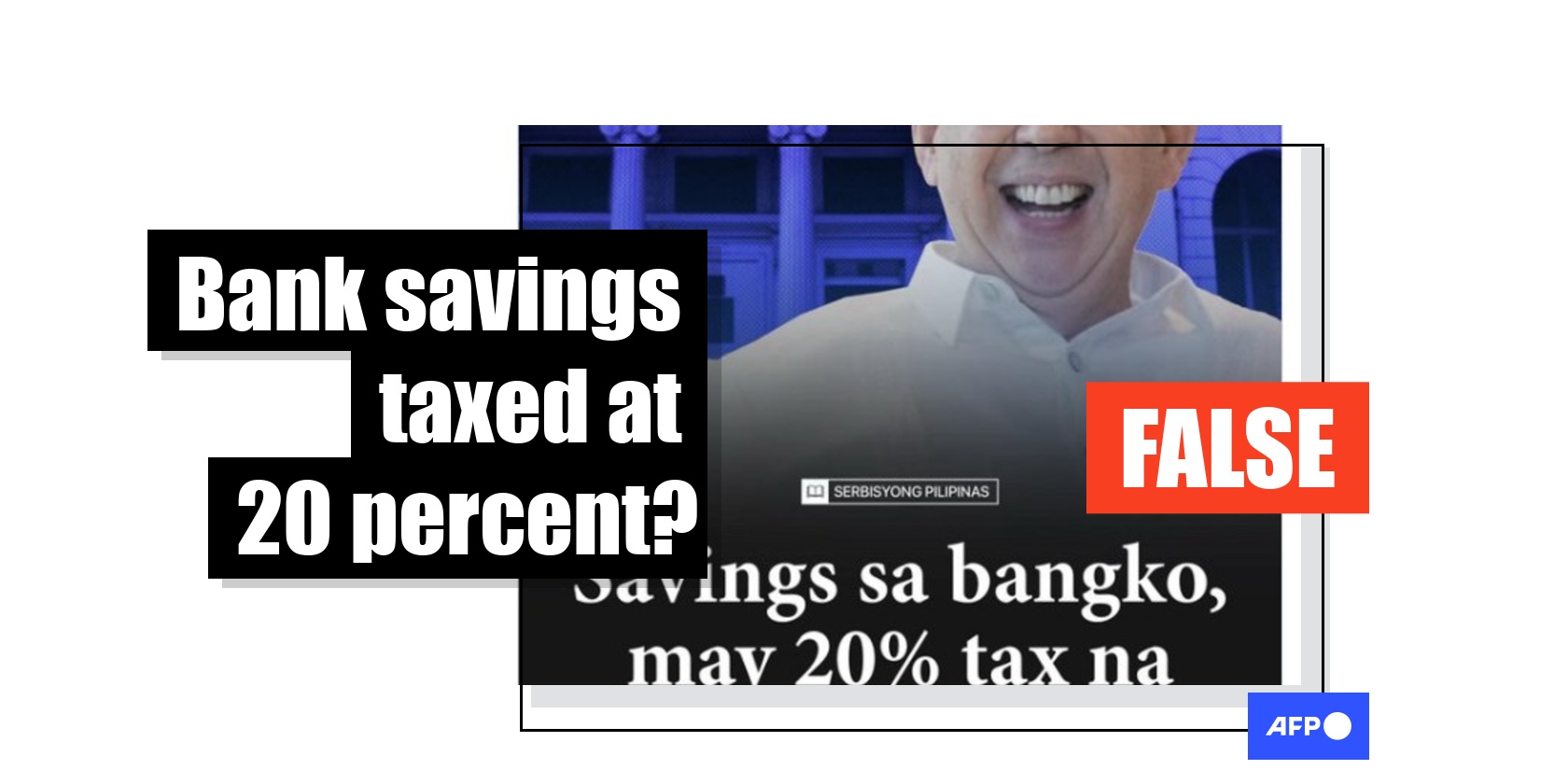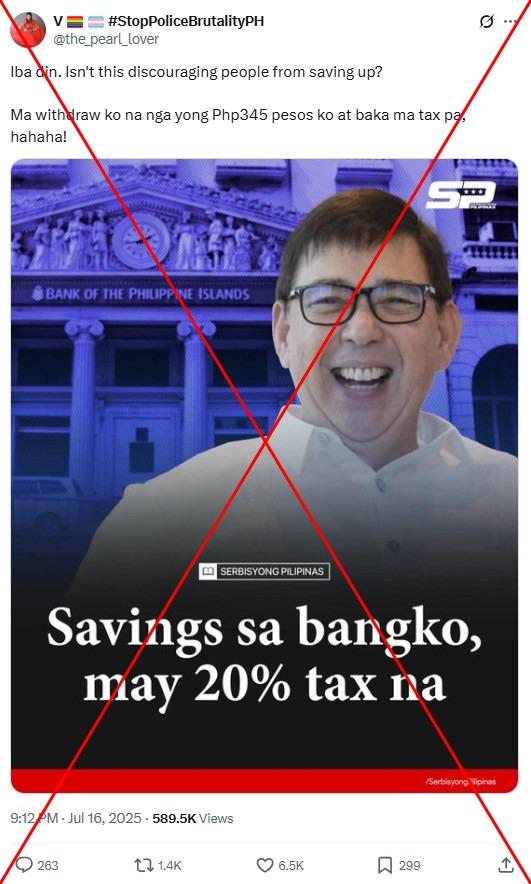
Posts falsely claim new Philippine law taxes bank savings
- Published on July 31, 2025 at 08:11
- 2 min read
- By Ara Eugenio, AFP Philippines
"Savings in banks now have a 20 percent tax," reads the overlaid text on an image of Finance Secretary Ralph Recto, shared in a July 16, 2025 post on X with more than 1,400 shares.
"This is something else. Isn't this discouraging people from saving up? Let me just take out my 345 pesos (US$6) now before it gets taxed hahaha!" the caption says.
Recto is a key figure in President Ferdinand Marcos Jr.'s economic team, whose members were retained despite a cabinet revamp aimed at reviving his administration's popularity after disappointing midterm election results (archived link).

Similar posts circulated across social media, drawing concerns from users who believed the government had begun taxing all personal savings.
"It's already hard to save, and now they're imposing a 20 percent tax?" one user said.
Another commented: "Let's just put our money in a piggy bank. Recto is out of his mind."
Taxing interest income
The posts surfaced nearly two weeks after the Capital Market Efficiency Promotion Act (CMEPA) -- enacted on May 29 -- took effect in July (archived link).
But Carina Laforteza, head tax lawyer at SyCipLaw firm, said the law does not "impose a new tax on savings per se, as only the interest income -- not the principal -- is subject to tax" (archived link).
Laforteza explained that a 20 percent final withholding tax on interest income has long been in place, with some exemptions: foreign currency deposit unit (FCDU) accounts were taxed at 15 percent, while long-term deposits of five years or more were exempt (archived link).
"CMEPA removed these exceptions," she said.
The Department of Finance (DOF) also rebuffed the false posts in a July 17 statement, clarifying it does not impose a new levy on money saved but standardises the tax rate on interest income to correct an "unfair system that favoured the wealthy" (archived link).
It noted that the law is not retroactive, so time deposits made before July 1 will continue to enjoy the preferential tax rates until maturity.
Mon Abrea, the chief tax advisor of Asian Consulting Group, said the removal of the tax exemption "brings both gains and drawbacks" (archived link).
"While it boosts government revenue, it also increases the tax burden on depositors, especially conservative, middle-income savers who relied on long-term deposits as a safe, tax-free option," he told AFP on July 29. "With the exemption gone, these products lose their financial appeal."
Terence Conrad Bello, a lawyer with the taxation and commercial law firm Baniqued & Bello, said the repeal "will obviously create a disincentive for long-term savings" and will "likely dampen the market" (archived link).
Laforteza noted that while some may continue with long-term deposits despite the removal of tax exemptions, others might turn to alternatives with higher returns or lower taxes.
"If a person is a 'saver', the removal of the tax incentive should not affect [their] decision to save, but it may affect where the savings are made," she added.
AFP has previously debunked claims about Philippine economic policies here and here.
Copyright © AFP 2017-2026. Any commercial use of this content requires a subscription. Click here to find out more.
Is there content that you would like AFP to fact-check? Get in touch.
Contact us
